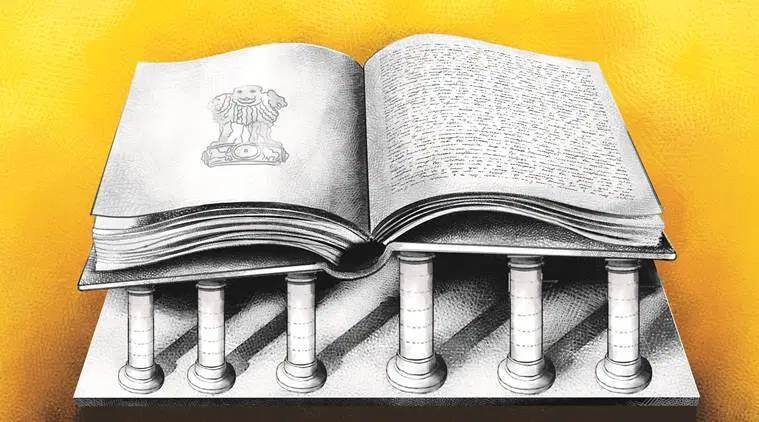Rule 93(2) Amendment: Undermines Election Transparency
How the Rule 93(2) Amendment Reshapes Electoral Transparency in India

The government has silently modified Section 93(2) of the 1961 Conduct of Elections Rules. The amendment will again further limit public access to some electronic records related to the election. A silent modification reportedly at the behest of the ECI has created much controversy now among people as it questions whether the silent modification has really benefited transparency, accountability, or public trust in the electoral process.
Understanding Rule 93(2) and Its Amendment
The Conduct of Elections Rules, 1961, Rule 93, was for making the procedure of an election transparent in giving the concerned parties all the papers regarding the elections. There, by “papers,” it referred to the ballots and results and all other such papers for voting.
Specifically, the amendment modifies sub-rule 2(a), adding the word “as specified in these rules” right after the term “papers.” On the face of it, this seems almost a paltry linguistic appendage; on its impact, however, the change is fundamental. By this, public access to documents also gets circumscribed, except for electronic records such as CCTV coverage, webcasting, and video recording of candidates while canvassing or campaigning.
Thus, these records of critical importance in independent scrutiny to protect the integrity of elections are gone. It is an interesting time with technology becoming only more central to how citizens vote, and it deepens thoughts about what it portends for public trust.

The Rationale Behind the Amendment
Government agencies have supported this amendment, believing it is necessary to prevent potentially improper use of sensitive records containing electronic information. Officials held that unfiltered access would open the scope for exploitation, misrepresentations, or inappropriate disputes in the electoral field.
The Election Commission has suggested and recommended it. The Commission believes that electronic records such as CCTV footage might be manipulated or misrepresented, which is quite an unnecessary controversy. They think that this amendment would protect the credibility of the electoral process.
Criticism of the Amendment
The opposition parties, lawyers, and civil society have expressed widespread criticism about the amendment, claiming it handicaps transparency, one feature of any democratic process that is indispensable.
Political Opposition
The Congress party has spearheaded the opposition to this initiative. The seniors described the change as a brazen assault on the electoral process’s integrity.
“The integrity of the electoral process is fast eroding. Hopefully, the Supreme Court will help restore it,” said Ramesh, showing how any form of public consultation on such an amendment cannot be carried out.
Civil Society Concerns
If the electronic record were barred from access, the independent body in charge would be less able to verify the integrity of the electoral process. In other words, the chance for manipulation or errors would go unchecked.
Legal and Constitutional Implications
The amendment raises several critical legal and constitutional questions, including:
- Right to Information (RTI): A bar on electronic access to election records would not be in confluence with the RTI Act, which gives the ordinary citizen a legal right to get information from public authorities. Transparency activists assume that such bars on access run afoul of this constitutional right, too.
- Judicial Oversight: A writ petition by Congress in the Supreme Court challenges the amendment’s legality. A verdict from the Court may set precedence in how transparency and privacy can be balanced in elections.
- Election Commission’s Accountability: ECI has been blamed for suggesting the amendment. In that regard, the Commission, which aims to protect fair elections, endorsed something to bring transparency to the limelight canner.
Impact on Public Trust and Electoral Transparency
Transparency is the main requirement for building public confidence in elections. The current move to curtail access to electronic records may jeopardize transparency in the electoral process. Critics argue this might increase cynicism about election fairness in a country as diverse as India.

Potential Erosion of Confidence
Such independent scrutiny may be inadequate and lead to allegations of malpractice or bias, further discrediting election outcomes and thus further eroding the democratic fabric of the nation.
Broader Implications
This might establish a precedent to move information flow beyond the electorates’ immediate procedures. Breakdowns in the transparency of the Indian voting process will likely result from this. The Conduct of Election Rules, 1961, Rule 93.
Global Comparisons
Worldwide, democracies make their election processes transparent. For example:
- United States: Many states provide access to electronic voting records and audit trails to ensure accountability.
- European Union: The EU electoral systems harmonize strength in data protection with openness to achieve anonymity and public trust.
- Australia: The Australian Electoral Commission offers detailed reports on election processes, including access to electronic voting systems.
India, the world’s largest democracy, risks losing its international position if it does not continue providing access to critical electoral records.
The Road Ahead
This supersedes the 93(2) amendments, and thus, on the one hand, it throws forward the necessity of a more holistic approach toward electoral transparency. Therefore, this debate would constitute the balancing act between confidentiality and public accountability.

Possible Solutions
- Judicial Review: The Supreme Court’s intervention may clarify whether the amendment is constitutional and to what extent public access to election records is possible.
- Stakeholder Consultation: Consultation with political parties, civil society, and independent experts can occur when developing public policy with fairer outcomes.
- Enhanced Oversight Mechanisms: More oversight mechanisms like independent institutions reviewing electronic voting records may increase transparency but reduce concerns over the comparability of results.
Conclusion
This has, therefore, brought on an important debate on the issue of transparency and accountability in Indian electoral processes concerning Rule 93(2) amendment. While there is a strong case to protect sensitive information, it cannot come at the cost of the public trust. Making the elections open, fair, and verifiable would help India deliver on its much-availed democratic ideals.




